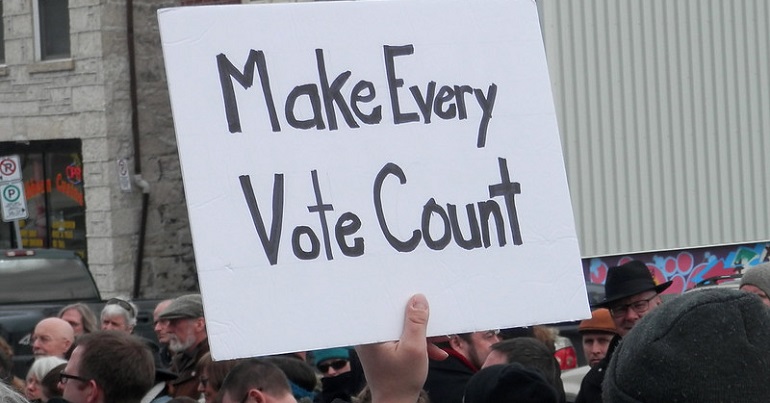The long and winding path to proportional representation

The path to proportional representation (PR) has been long, winding and rocky and we are still some distance from reaching our end destination. But at least it is starting to emerge from the mist.
Partygate, sexual misconduct by MPs and lobbying scandals have all contributed to a heightened awareness of the weaknesses of a First Past the Post (FPTP) voting system that rewards MPs and governments with unassailable and unearned majorities.
This has coincided with – or driven – an appetite for change amongst Labour Party members who favour a voting system with outcomes that match voters’ preferences and cannot stomach an electoral system weighted in favour of their Conservative opponents.
Their party conference delegates in just a few days time may succeed, where last year they narrowly failed, in passing a motion in support of PR, as significant unions including Unite and Unison now have policy for PR.
But that won’t be the end of the story. Passing a motion at a conference isn’t the same as including PR in their manifesto. And including PR in their manifesto isn’t the same as implementing it in Government.
For political parties like the Green Party or the Liberal Democrats, long committed to scrapping an unfair voting system which deprives millions of voters of their democratic voices, the challenge will be to increase the pressure for reform and help to embed reform in all the party manifestos.
There will be no difficulty in exposing the flaws of FPTP. The former Chancellor Rishi Sunak has helped by revealing the targeting of government funding on areas represented by governing party MPs (a trick much harder to pull off when seats are allocated proportionally). Another perfect illustration is the correlation between MPs who have been sanctioned or lost the party whip and the bloated size of most of their majorities.
And it will involve flagging all the benefits of PR. Such as the role PR plays in improving gender balance and diversity in parliaments, driving higher turnout in elections, and enabling faster action on the climate crisis.
But it must also be made clear that significant numbers of voters will not reward a party which sticks with an arcane system that gives a voice to a select few, in a hundred or so marginal seats, and largely ignores everyone else.
With the mist lifting and the PR finishing line looming, proponents of PR can expect a massive, well-funded and dishonest media campaign to be launched by FPTP’s die-in-a-ditch supporters. Every old myth will be unearthed, from claims PR automatically leads to unstable government, to PR will ensure party X is always in power. Recent columns in some of our newspapers confirm the messaging for this onslaught is already being trialled.
In anticipation of this offensive, the pro-PR parties must join forces behind a positive, united message of democratic renewal and hope.
The temptation for all the players to claim unique insight, commitment, foresight or a messianic belief in their PR solution is to be resisted.
The objective, aim and goal has to be to get a good, proportional voting system.
We can then make governments accountable to Parliament.
We can make MPs answerable to their constituents.
We can fix the deep-seated problems in politics and start to rebuild trust.
By making all votes count equally we can finally unlock real democracy and make government work for the people.
If you think this is worth doing, join us in pushing for PR.
Make Votes Matter and Unlock Democracy will be hosting a fringe meeting – the Path to Proportional Representation – at 1.30pm on Sunday 2nd October at the Green Party conference in Harrogate with Natalie Bennett, Adrian Ramsay, Amelia Womack.
Klina Jordan is chief executive of Make Votes Matter. Tom Brake is director of Unlock Democracy.
PS. We hope you enjoyed this article. Bright Green has got big plans for the future to publish many more articles like this. You can help make that happen. Please donate to Bright Green now.
Image credit: Ryan Hodnett – Creative Commons




I think that we lost the AV referendum and should get over it.
I think that if Labour passes a motion in favour of PR at their conference this opens the possibility of a progressive alliance to get the Tories out. However, if Labour then fails to include PR in their election manifesto, the Greens, LibDems and others should immediately pull out of any such alliance at that point.
Compass have been more than a little premature in campaigning for a progressive alliance even before any decision at Labour’s conference has been made in favour of PR. However, their campaign is maybe a good starting point to work from?